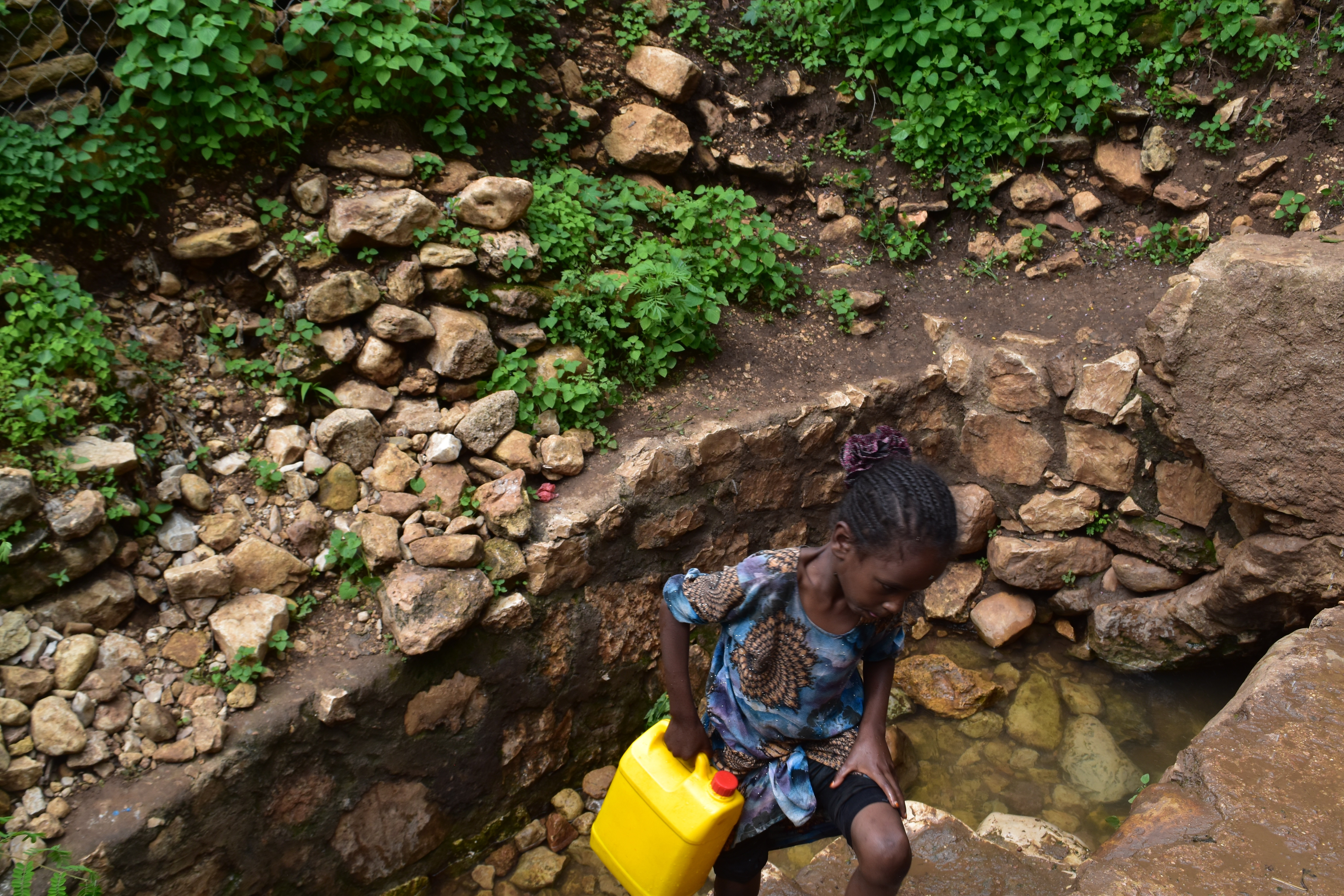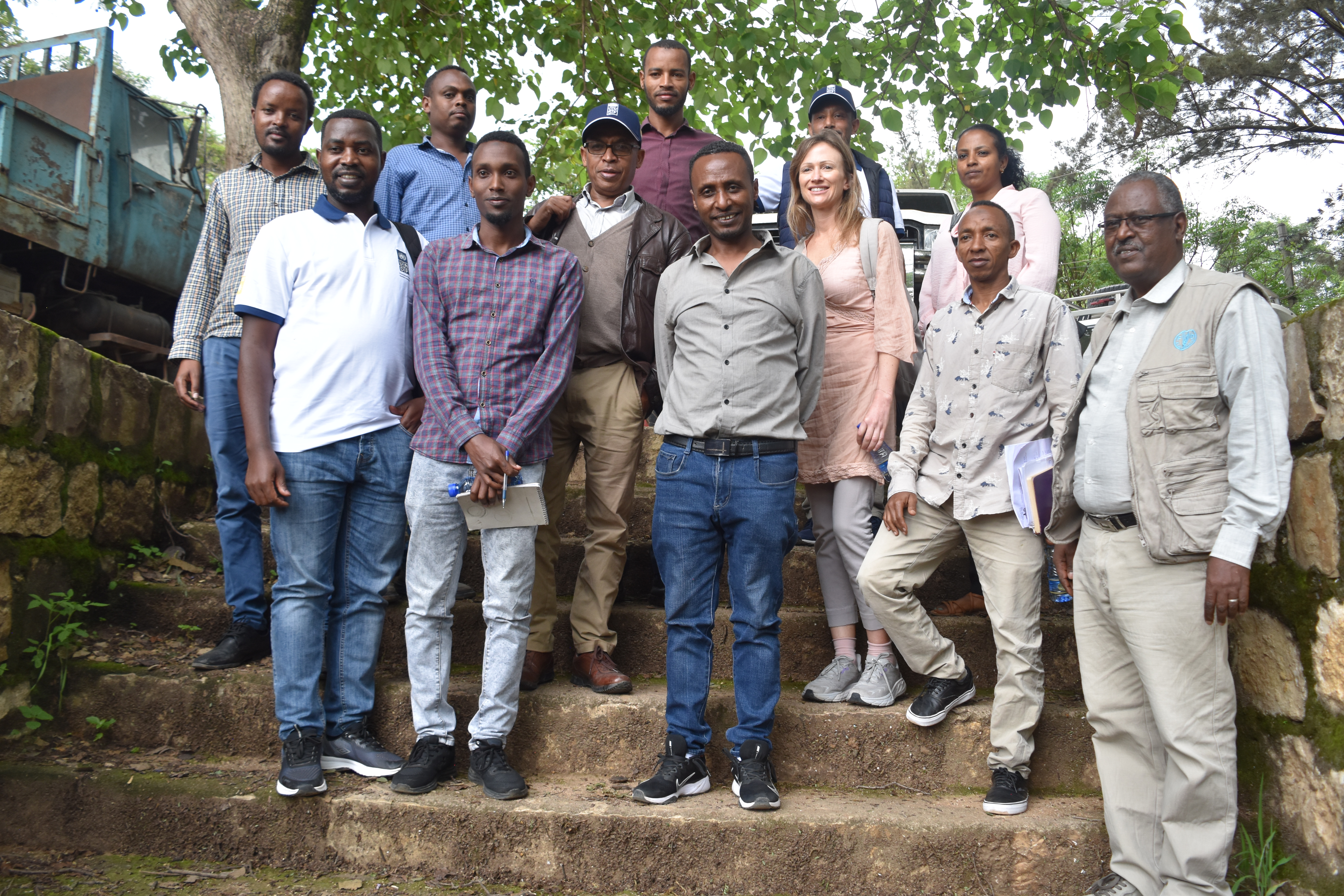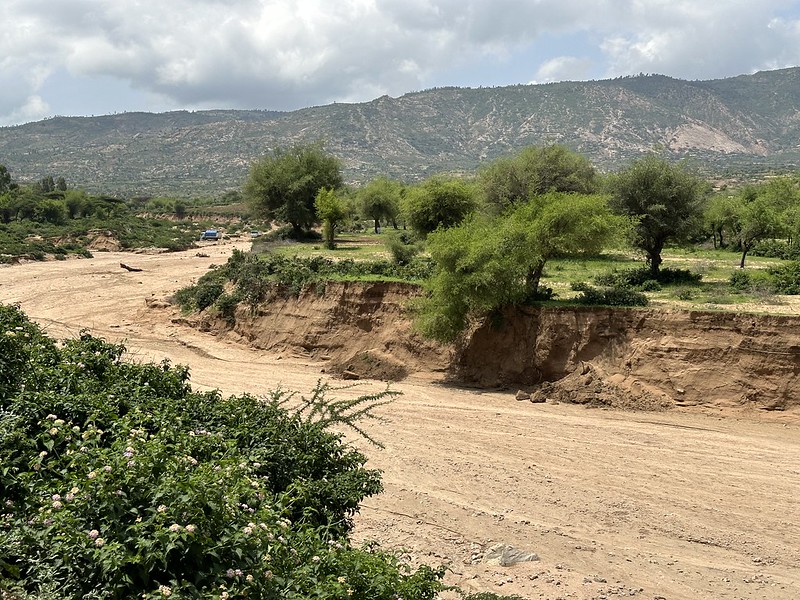An inside look at the scoping mission in Oromia and Harari Regional States of Ethiopia
June 2, 2023

Sofi Kebele in Lugo micro-watershed
May 2023 - Ethiopia is highly vulnerable to the impacts of climate change and the country is increasingly experiencing food insecurity, water scarcity, pests and disease outbreak, floods, drought periods, etc. The agriculture sector is one of the most impacted sectors, due to its dependence on natural resources including rain and its relatively low adaptive capacity to the impacts of climate change. The effect is more severe amongst the most disadvantaged groups, such as poor smallholder farmers and women, as their adaptive capacity is relatively low.
In response to the continuing climate crisis, the Government of Ethiopia has developed plans that entail various measures to mitigate and adapt to the impacts of climate change. These include: the Climate Resilience and Green Economy (CRGE) Strategy and CRGE Facility, which is the financial wing for the implementation of the Strategy; updated Ethiopia’s NDC; the National Adaptation Plan with its resource mobilization strategy; the Climate Resilient Strategies for the Agriculture, Forestry, Energy, Water, Transport, Urban Development and Housing sectors. Furthermore, the country’s Ten Years Development Plan (2020- 2030) considered CRGE as one of its pillars. These plans are implemented with technical and financial support from the MDAs and development partners.
Particularly, in 2022, UNDP and FAO in collaboration with the Government of Ethiopia launched the SCALA Programme in the country. SCALA (scaling up climate ambition on land use and agriculture) programme is jointly implemented in partnership with the Ministry of Agriculture and Environmental Protection Authority and designed to support the country to translate the updated Nationally Determined Contributions (NDC) and National Adaptation Plans (NAPs) priorities into actionable and transformative climate solutions in land-use and agriculture sectors.
As part of translating the updated National Determined Contributions priorities into actionable climate solutions, the SCALA Programme initiated a System-Level Assessment (SLA) at watershed scale. To kick start this assessment, the team embarked on a scoping mission in Oromia and Harari regions from 2-19 May 2023 to gather evidence.

Scoping assessment mission members
A bird's eye view of the assessment
The purpose of SLA is to identify context-specific challenges, innovative and transformative climate solutions and appropriate evidence needed to understand the potential for transformation at the watershed level. The SLA will generate evidence for climate-risk informed local development planning and resource mobilization to support climate actions in the assessment areas. The generated evidence will support developing of bankable project concepts for catalysing private sector investment in climate actions particularly through gender-responsive and climate-resilient VC development.
The scoping assessment engaged several government administrative levels, including at the Federal, Regional, Woreda, Kebele and watershed communities. The assessment team was composed of technical experts from the SCALA global team, FAO HQ, UNDP Regional Office, SCALA Country Teams (FAO and UNDP), government counterparts (MoA and EPA) and a representative from Frontieri Consulting firm.
Jamote and Lugo watersheds in Oromia and Harari Regions respectively were selected for this assessment. The selection of these watersheds was based on the methodology of Community Based Participatory Watershed Development guidelines developed by the Ministry of Agriculture (updated version 2020).

Dried seasonal river near Dire Dawa. Seasonal rivers only fill with water during the rainy season from July to September.
The assessment started with a series of consultation meetings held in Addis Ababa with the Ministry of Agriculture, Environmental Protection Authority, FAO and UNDP gender experts and Oromia and Harari Regional Bureau (Adama and Sofi Woredas) complimented with a site visit in the Lugo watershed.
Phase two of the assessment was conducted in Adama, where the team focused on customizing the gender-responsive, climate-resilient value chain toolkit followed by a training on gender-responsive, climate-resilient value chain toolkit for the scoping mission team and other selected stakeholders. The final phase was concluded with a systems-level assessment inception workshop in Adama where more than 25 participants drawn from the Woreda Bureau of Agriculture; Banks and Microfinance institutions participated. The inception meeting discussed the methodological approach and tools to be used during the SLA.

Before they had the watershed, it used to take the girls three hours to fetch water.
Preliminary findings and climate action hotspots
Despite the efforts made at various levels, climate change remains a challenge for local communities and the agriculture sector in Ethiopia. Watershed communities in Oromia and Harari regions are continuously experiencing climate change hazards in the form of drought, late/early onset of rain, floods, animal and crop pests and diseases outbreak, invasive plant species, particularly Lantana Camara and water stress. Additionally, non-climatic drivers of vulnerability were reported, and these include deforestation, soil degradation, soil erosion, and over grazing.
The assessment also revealed that there is a limited exposure and access to market linkage from input to market end opportunity, private sector engagement and access to formal credit lines or microfinance. The assessment also confirmed the low participation of women in agriculture sector even though the government requires 30 percent female participation in CRGE priority climate action implementation.
These observations will be further investigated with a detailed system level assessment including gender analysis and value chain analysis that will be conducted at watershed; regional and national level, and a similar consultation will be carried out with key stakeholders and partners.
Engaging all actors in the process
The assessment process also demonstrated the engagement of multi-stakeholders as it is a critical source of expertise, financing, networks, and innovation in driving sustainable and inclusive growth and supporting climate action. Private sector engagement is one of the core objectives of the SCALA programme. The program aims to catalyze the private sector in delivering climate solutions aligned with NDC and NAP across agriculture and land use sectors.
In the Ethiopian context, the engagement of the various stakeholder’s such as civil society organizations and financial institutions have an important role to play in executing the adaptation and mitigation priorities enshrined in NDCs and NAPs. However, creating an enabling environment and providing the right incentives is essential for enhanced engagement of private sectors.
***
The SCALA Programme provides support to 12 countries worldwide, including Ethiopia, with funding from the German Federal Ministry for Economic Affairs and Climate Action (BMWK) through the International Climate Initiative (IKI). UNDP and FAO in collaboration with the Ministry of Agriculture and other stakeholders have been working on a series of capacity building activities at the federal and regional level. Socialization of the NAP and NDC with Ethiopia’s CREG implementing entities at the Federal and Regional levels and a series of trainings on MRV NEXT are among the many activities being carried out by the two agencies under this programme.

 Locations
Locations
